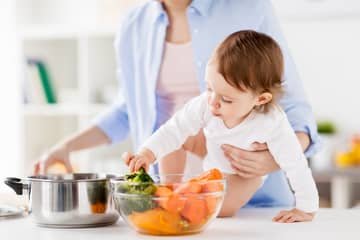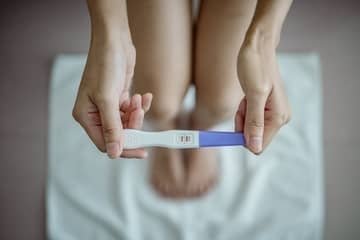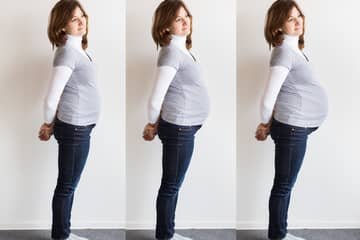
What to eat after childbirth?
Every woman experiences the following days after childbirth differently. Much depends on the difficulty of childbirth and its progress. And this is also related to eating and defecating, which can be quite difficult in some cases. Especially moms who gave birth by caesarean section or had a ruptured or cut diaphragm know that you need to be careful about your diet. Constipation or diarrhea can be a big nuisance under any circumstances. Despite the fact that many women are happy that after giving birth they can enjoy their favorite foods that they had to limit during pregnancy, it is necessary to think about the fact that, with a high probability, the mother will be breastfeeding, which also requires certain restrictions in the diet. At the same time, a healthy and balanced diet is a guarantee of high-quality and tasty breast milk. What kind of diet should I have after giving birth?
The diet after childbirth must be balanced and sufficiently varied. In principle, there is no need to make special prohibitions, everything in moderation is the best approach when eating after childbirth. Of course, there are foods that you should avoid for your own sake and the sake of the baby. Definitely forget about special diets that will get you in shape or about detoxification. You can seriously harm yourself with such an approach. The diet in the sixth week must therefore be adapted not only to the needs of your organism, but also to the needs of the breastfed child.
After giving birth, avoid foods that cause bloating and bloating. So limit the excessive amount of legumes, kohlrabi, cabbage, kale or cauliflower. Also, pay attention to strongly aromatic types of vegetables, such as onions, garlic or horseradish. Also fruits that bloat - grapes, pears, apricots, peaches. Instant meals or semi-finished products are not the most suitable either. Beware of caffeine intake, maximum 1 to 2 cups of coffee per day.
You still have to give up alcohol, energy drinks, and don't even risk unpasteurized dairy products or raw meat. Be careful also with seafood or raw fish. You don't have to worry about potential allergens such as strawberries, nuts, peanuts or citrus fruits, but watch for possible reactions of you and your baby. Also unsuitable are spicy or overly acidic foods, which can cause irritation of the digestive tract. Fried foods should not be on the menu regularly, but if occasional consumption does not harm you, you do not have to limit yourself.
Right after giving birth, light cereal porridge, rice, lean meat (chicken, turkey), boiled potatoes or puddings have proven to be excellent. Whole grain bread is suitable. Even after childbirth (constantly) the drinking regime is extremely important. By taking in fluids, you ensure a better course of lactation. You can also include delicious meat or vegetable broths in this. You don't have to worry about poppy seeds either after giving birth, which is a rich source of calcium. It is recommended to omit only during the first weeks of breastfeeding. You don't even have to worry about pasteurized cheeses or dairy products. The best meat is chicken, turkey or beef, or freshwater fish in a heat-treated form. Domestic fruits, such as apples, blueberries, plums, gooseberries, but also "exotic" bananas, for example, are suitable. Fruit will also curb your sweet tooth. Pumpkin, beetroot, carrot, zucchini or spinach are a great choice of vegetables.
Pridať komentár







